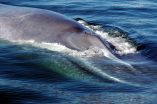The Lancet: Doctor who survived Ebola received experimental drug treatment
2014-12-19
(Press-News.org) A Ugandan doctor, who contracted Ebola in Sierra Leone, survived after being flown to Germany for aggressive treatment involving a new drug under clinical development for vascular leakage [1]. Dr Timo Wolf and colleagues, from University Hospital Frankfurt in Germany, detail the successful intensive-care treatment the doctor received under biosafety level 4 conditions in an Article published in The Lancet.
On 28 September, 2014, the 38-year old doctor, who was in charge of an Ebola virus treatment unit in Lakka, Sierra Leone, developed a fever and diarrhoea. He tested positive for the virus on the same day. The doctor was airlifted to Frankfurt University Hospital on the 5th day of his illness and admitted to a specialised isolation unit.
Within 72 hours of admission he developed signs of vascular leakage and severe multi-organ failure, including the lungs, kidneys, and gastrointestinal tract. He was placed on a ventilator and on kidney dialysis, and was given antibiotics together with a 3-day course of an experimental drug called FX06--a fibrin-derived peptide [2] that has been shown to reduce vascular leakage and its complications in mice with Dengue hemorrhagic shock.
A marked improvement in vascular and respiratory function was seen under the combined measures of intensive care and drug treatment. After a 30-day observation period, no Ebola virus genetic material was detected in the patient's blood plasma. The patient was released from hospital and is now with his family.
"Even though the patient was critically ill, we were able to support him long enough for his body to start antibody production and for the virus to be cleared by his body's defences"*, explains Dr Wolf.
"In terms of improving treatment for Ebola patients, we have shown how intensive care medicine can successfully be applied under strict isolation conditions", adds senior author Professor Zacharowski, head of the Department of Anaesthetics and Intensive Care Medicine at Frankfurt University Hospital."*
The authors conclude by calling for FX06 to be evaluated in clinical trials.
INFORMATION:
Notes
*Quotes direct from authors and cannot be found in text of Article.
[1] Vascular leakage is the loss of fluid from blood vessels into the tissue due to the damage of the "lining" of the vessels.
[2] FX06 is a peptide that binds to VE-cadherin, a target on the surfaces of endothelial cells (which form the inner cell layer of blood vessels), and is believed to have a role in stabilizing the endothelium.
ELSE PRESS RELEASES FROM THIS DATE:
2014-12-19
Prostaglandin analogue eye drops, the most commonly prescribed treatment for glaucoma, can greatly reduce risk of vision loss in people with open angle glaucoma (OAG), one of the leading causes of blindness, according to the first placebo-controlled trial to assess their vision-preserving effect published in The Lancet.
"Medication to lower raised eye pressure has been used for decades as the main treatment for OAG to delay progressive vision loss. But, until now, the extent to which the most frequently prescribed class of pressure-lowering drugs (prostaglandin analogues) ...
2014-12-19
Highlight
Kidney donors with hypertension had slightly fewer nephrons (the kidney's filtering units) at the time of donation than similarly aged donors with normal blood pressure; however, 6 months following their surgery, hypertensive and non-hypertensive donors both maintained excellent blood pressure control and had similarly robust compensatory kidney responses.
Nearly 6,000 people donate a kidney in the United States each year.
Washington, DC (December 18, 2014) -- With proper monitoring, kidney donation may be safe for individuals with high blood pressure, according ...
2014-12-18
Struggling to balance on one leg for 20 seconds or longer was linked to an increased risk for small blood vessel damage in the brain and reduced cognitive function in otherwise healthy people with no clinical symptoms, according to new research in the American Heart Association's journal Stroke.
"Our study found that the ability to balance on one leg is an important test for brain health," said Yasuharu Tabara, Ph.D., lead study author and associate professor at the Center for Genomic Medicine at Kyoto University Graduate School of Medicine in Kyoto, Japan. "Individuals ...
2014-12-18
WINSTON-SALEM, N.C. - Dec. 18, 2014 - State and local enforcement of federal immigration laws can have an adverse impact on the use of health care services by immigrant Hispanics, according to a North Carolina-based study by Wake Forest Baptist Medical Center researchers.
The study, published in the Dec. 18 issue of the American Journal of Public Health, analyzed both birth records and information collected in focus groups and individual interviews.
"Our findings suggest that immigration enforcement policies negatively affect the health of immigrant Hispanics, including ...
2014-12-18
An investigation into factors related to disparities of depression in young adults has found that higher parental education - which has a protective effect for white youth - can also increase the risk of depression for black youth. The MassGeneral Hospital for Children (MGHfC) study published online in the Journal of Pediatrics also found that, among high-socioeconomic-status black youth, greater perceptions of being discriminated against cancelled out the protective effects of parental education.
"High socioeconomic status (SES) - particularly higher parent education ...
2014-12-18
Before Charlotte the spider spelled the word "humble" in her web to describe Wilbur the pig, she told Templeton the rat that the word meant "not proud."
That's probably what most people say if you put them on the spot. But if you give them time to think about it deeply, like a new study just did, other themes emerge that have a lot to do with learning.
And these intellectual dimensions of humility describe the spider as well or better than the pig.
"Wilbur has many of the dimensions of humility in general: regard for others, not thinking too highly of himself - but ...
2014-12-18
Auroras are the most visible manifestation of the sun's effect on Earth, but many aspects of these spectacular displays are still poorly understood. Thanks to the joint European Space Agency and NASA's Cluster mission combined with data from a past NASA mission called the Imager for Magnetopause-to-Aurora Global Exploration, or IMAGE, a particular type of very high-latitude aurora has now been explained.
Known as a theta aurora -- because seen from above it looks like the Greek letter theta, an oval with a line crossing through the center -- this type of aurora sometimes ...
2014-12-18
ITHACA, N.Y. - To encode data, today's computer memory technology uses electric currents - a major limiting factor for reliability and shrinkability, and the source of significant power consumption. If data could instead be encoded without current - for example, by an electric field applied across an insulator - it would require much less energy, and make things like low-power, instant-on computing a ubiquitous reality.
A team at Cornell University led by postdoctoral associate John Heron, who works jointly with Darrell Schlom, professor of Industrial Chemistry in the ...
2014-12-18
Scientists from WCS (Wildlife Conservation Society), the Universidad Austral de Chile, the Blue Whale Center, the American Museum of Natural History (AMNH), NOAA, and other organizations are examining molecular clues to answer a big question: how many types of blue whales exist in the waters of the southeastern Pacific?
The answer seems to be two distinct populations, according to a genetic study comparing the blue whales off the southern coast of Chile with those swimming in the waters of Antarctica and other nearby regions. One of the populations could be made up of ...
2014-12-18
By 2050, a majority of U.S. coastal areas are likely to be threatened by 30 or more days of flooding each year due to dramatically accelerating impacts from sea level rise, according to a new NOAA study, published today in the American Geophysical Union's online peer-reviewed journal Earth's Future.
The findings appear in the paper From the Extreme to the Mean: Acceleration and Tipping Points for Coastal Inundation due to Sea Level Rise, and follows the earlier study, Sea Level Rise and Nuisance Flood Frequency Changes around the United States, by the report's co-author, ...
LAST 30 PRESS RELEASES:
[Press-News.org] The Lancet: Doctor who survived Ebola received experimental drug treatment


